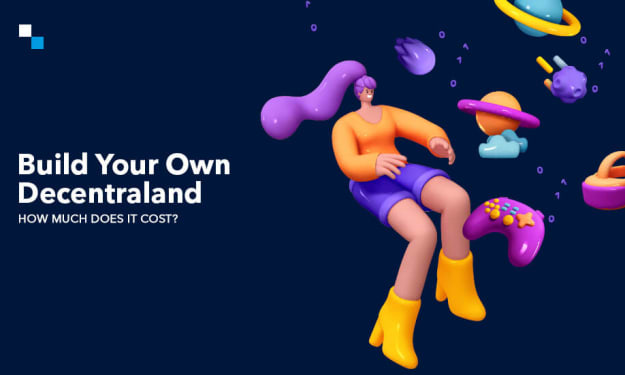
Introduction: Understanding Quantum Computing
In the rapidly evolving landscape of technology, quantum computing has emerged as a revolutionary field with the potential redefine computation. While classical computers use bits to represent and process information, quantum computers utilize quantum bits, or qubits, which operate on the principles of quantum mechanics. In this article, we will explore to the fundamentals of quantum computing, its key concepts, and its promising applications.
The Basics of Quantum Mechanics
Before delving into quantum computing, it is essential to grasp the fundamental principles of quantum mechanics. Quantum mechanics is a branch of physics that describes the behavior of matter and energy at the smallest scales, such as atoms and subatomic particles. It introduces concepts like superposition, entanglement, and uncertainty, which form the foundation of quantum computing.
What is Quantum Computing?
Quantum computing is a field that harnesses the principles of quantum mechanics to perform complex computations more efficiently than classical computers. Unlike classical computers that rely on binary states (0s and 1s), quantum computers leverage qubits that can exist in multiple states simultaneously, thanks to superposition. This unique property enables quantum computers to process vast amounts of information simultaneously, leading to exponential computational speed-ups.
Quantum Computing vs. Classical Computing
Quantum computing differs significantly from classical computing in terms of how information is stored, processed, and calculated. Classical computers use binary digits (bits) that can represent either a 0 or a 1. On the other hand, quantum computers employ qubits that can exist in a superposition of 0 and 1 states simultaneously. This allows quantum computers to explore multiple possibilities simultaneously and potentially solve complex problems much faster than classical computers.
Quantum Bits (Qubits) and Superposition
Qubits are the building blocks of quantum computers and are analogous to classical bits. However, unlike classical bits, which can only be in one state at a time, qubits can exist in a superposition of states. Superposition allows qubits to represent and process exponentially more information simultaneously. It is this inherent property of qubits that enables quantum computers to solve certain problems with exceptional speed and efficiency.
Quantum Gates and Operations
In classical computing, logic gates are used to manipulate and process bits. Similarly, in quantum computing, quantum gates are utilized to manipulate and transform qubits. Quantum gates perform operations such as rotations, flips, and entanglement between qubits. By combining various quantum gates, complex computations can be performed, paving the way for quantum algorithms.
Quantum Entanglement and Teleportation
Quantum entanglement is a phenomenon that occurs when two or more qubits become intertwined in such a way that the state of one qubit is instantly correlated with the state of another, regardless of the distance between them.This property enables secure communication and forms the basis of quantum teleportation, a process by which quantum information can be transferred instantaneously from one location to another, without physically moving the quantum state itself.
Quantum Algorithms: Shor's Algorithm and Grover's Algorithm
Quantum computing introduces powerful algorithms that can outperform classical algorithms for specific tasks. Two notable examples are Shor's algorithm and Grover's algorithm. Shor's algorithm aims to efficiently factorize large numbers, which has significant implications for cryptography and security. Grover's algorithm, on the other hand, is a search algorithm that provides a quadratic speedup compared to classical search algorithms.
Current Challenges in Quantum Computing
While quantum computing holds immense potential, several challenges need to be overcome to realize its full capabilities. One major obstacle is the issue of qubit stability and decoherence. Qubits are fragile and susceptible to noise and interference, which can lead to errors in computations. Researchers are actively working on developing error correction techniques and improving qubit coherence times to address these challenges.
Quantum Computing Applications
Quantum computing has the potential to revolutionize various fields and industries. It can enhance optimization problems, accelerate drug discovery, optimize logistics and supply chains, improve financial modeling, simulate complex physical systems, and advance machine learning algorithms. Quantum computing's impact is expected to be profound in areas where vast amounts of data need to be processed quickly and complex calculations are involved.
Quantum Computing in the Future
As research and development in quantum computing continue to progress, the future holds exciting possibilities. Quantum computers are expected to become more powerful and reliable, enabling breakthroughs in scientific research, encryption methods, artificial intelligence, and more. Governments, academia, and industry leaders are investing heavily in quantum computing research and infrastructure, indicating a promising trajectory for this field.
Conclusion
Quantum computing represents a paradigm shift in the world of computation. By leveraging the principles of quantum mechanics, quantum computers offer the potential to solve complex problems exponentially faster than classical computers. While there are challenges to overcome, the prospects for quantum computing are remarkable, with applications spanning various industries and the potential to revolutionize fields such as cryptography, optimization, and simulation.
About the Creator
Payal
Meet Payal, the storyteller extraordinaire, who has a passion for captivating her audience with amazing tales that transport them to new worlds and inspire their imagination.






Comments
There are no comments for this story
Be the first to respond and start the conversation.